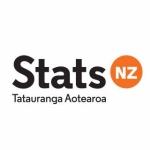Housing drives increase in spending

Average weekly household expenditure increased by $58 to $1,010 between 2006/07 and 2009/10, Statistics New Zealand said today. This increase was due to higher average weekly expenditure on housing and household utilities (up $40), food (up $15), and communication (up $5). However, spending on household contents and services decreased $5.
Results from the latest three-yearly Household Economic Survey (HES) showed significant changes in household spending between 2006/07 and 2009/10:
- housing and household utilities – rent, up $22 to $88; and household energy up $7 to $43, with electricity up $6 to $37
- food – restaurant meals and ready-to-eat food, up $5 to $43; meat, poultry, and fish up $3 to $27; and non-alcoholic beverages, up $2 to $10
- household contents and services – furniture and furnishings, down $4 to $12; and major household appliances, down $2 to $7.
In 2009/10, the housing and household utilities group was the largest component of household spending, making up one-quarter of total household expenditure (up from 22 percent in 2006/07). The next largest components are food (18 percent) and transport (13 percent).
For those making rent payments, 33 percent made weekly payments over $300 in 2009/10, up from 22 percent in 2006/07.
Other survey results showed that average annual household income increased from $68,710 to $76,584 between 2006/07 and 2009/10, driven by increases in wages and salaries, other government benefits, and New Zealand Superannuation and war pensions.
Highlights
- From the year ended 30 June 2007 to the year ended 30 June 2010:
- Average weekly household expenditure increased by 6.1 percent from $952 to $1,010.
- The following expenditure groups had the largest changes:
- housing and household utilities, up $40 to $253
- food, up $15 to $178
- communication, up $5 to $36
- household contents and services, down $5 to $45.
- Average annual household income from regular sources increased 11.5 percent to $76,584.
